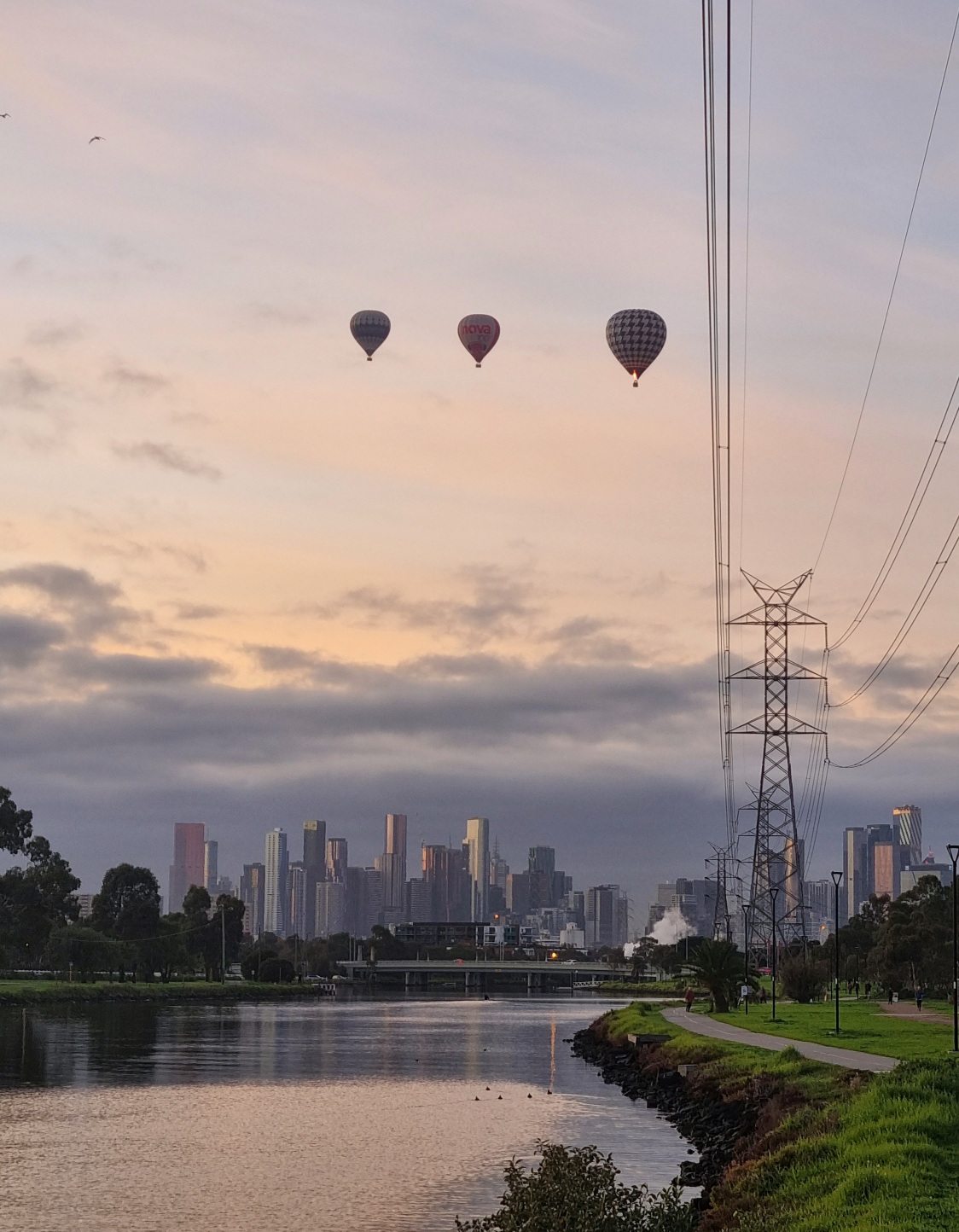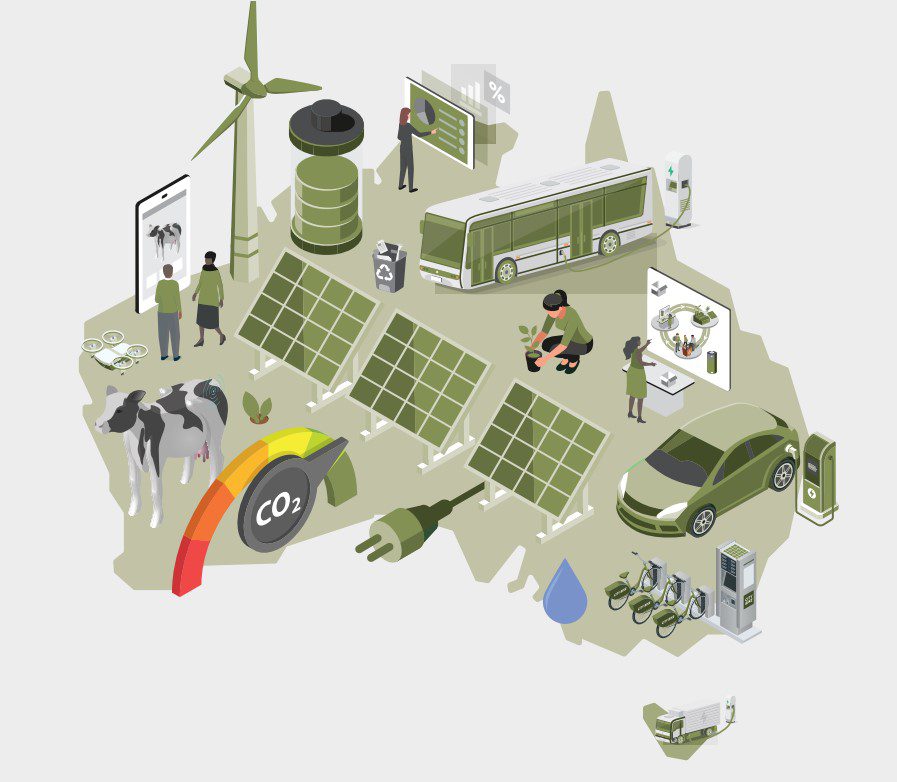- 16 Posts
- 44 Comments

 5·1 month ago
5·1 month agoDamn, gives a good perspective to the size of that Wedgie!

 2·7 months ago
2·7 months agoThose turbines look interesting, definitely a plausible technology based off that video. Looks like they have used gearing between the two blades to concentrate the energy from both blades so you only need one electric generator (generally just referred to as an electric motor but they do both) which is far more efficient (but still along the same lines of) stacking multiple up using electrical connections like you can do with solar modules to increase power output, which is what I was thinking of when I wrote my previous comment.
It also makes me think of this, https://youtu.be/Qbv_dtwTGDo?si=fSpRWpGqBlTEjMqH, which seems like a decent idea to me.
I’m not sure if it is a lack of feasibility that is getting in the way or just a lack of political will and interest. Could even be because solar is so cheap now that a newer, less refined technology (even in terms of legislation and infrastructure planning) with higher up front costs is just less desirable. I think I could still be worth investing in both in the long run (assuming it is actually viable).

 2·7 months ago
2·7 months agoI don’t know heaps about them directly, but in terms of rooftop VAWTs I guess it could depend on the type of roof, and ultimately the amount of wind that the rooftop will be exposed to.
It could be more challenging to create residential scales VAWT than it would be for commercial buildings such as the ABC building you mentioned (don’t know it off the top of my head but I’m assuming it is a least a few stories tall). I’d say a reason for this could be that as the amount of wind the turbine is exposed to reduces, so would the size of the generator, to ensure the force of the wind on the blades can generate enough counter-torque to get the blades moving and therefore generate power. Using smaller motors would definitely be possible, but you might reach a point where the amount of materials needed for each small-scale VAWT outweighs the amount of return through energy generation of each turbine, because the motor is so small, and counter-torque so small that the motor turning would only generate negligible amounts of power. EDIT: Forgot to add the context of I think there is generally more wind at higher altitudes, whether this is an in general rule or relative to the surrounds (like being in a valley vs being at the highest altitude in the region; or if you are in a low density township vs if you are in a density populated city with more structures blocking wind) I’m not certain, but it is the context for why I said residential rooftop VAWT may end up having far lower generating potential that commercial rooftop VAWT, because I’d say there is more wind on the roof of a commercial building than a residential one.
I would guess the large horizontal axis wind turbines would use large AC induction motors to generate the electricity as the blades turn. I would guess that AC motors would have some size limitations (easier to make really big ones than really small ones, not to say really big ones would present other challenges, but it would be incredibly challenging to make them under a certain size due to all the copper windings that need to fit in the motor) so once your VAWT reaches below a certain size a DC motor would need to be used. This introduces further complications, as our grid runs on AC, any DC power generation first needs to be converted to an AC waveform for the power to be injected in the grid (or used to power a load connected to the grid). This process is already performed for solar using inverters. It would also be performed for HAWTs (probably both AC to DC conversion followed by DC to AC conversion) to ensure the output (voltage, frequency, power factor) matches the grid.
It gets more complicated though, as inverters have an allowable operating DC input voltage range (these can be quite high voltages as you can place solar modules in series to increase the voltage of the generation. For example, if you put two solar modules, each with an operating voltage of 50V (arbitrary number) in series, the total voltage of that series connection will be 100V). This allows larger inverters to be used. It may not be as easy to utilise larger inverters in such a way with VAWT unless you scale up the number of them as using inverters for each individual small-scale VAWT could mean the use of a lot more materials. EDIT 2: There are cases where small inverters (known as micro inverters) are connected to every solar module in an array, so it could be argued you could do the same with small VAWT. There are also things called optimisers, which i think essentially perform the operation of a chopper (described further below) changing the DC voltage to match all the other modules before connecting to an inverter. Both of these option involve extra costs when compared to direct connection of entire strings (described further below) of modules to an inverter.
Considering using VAWT with batteries will also have added complications. Batteries store DC energy, so an AC to DC conversion would not be necessary to charge the batteries, but you would most likely still need DC to DC conversion (from memory they are called boost/buck choppers) to increase or decrease the input voltage to match the battery terminal voltage (a lot of solar inverters that can connect to batteries most likely already have these installed internally). These boost/buck choppers also have voltage input limitations, meaning they won’t operate if the input voltage is too low or too high. Therefore, to be able to use both solar and wind on say a residential rooftop, it may mean the installation of more, or retrofit of existing electronics so the power waveforms of both the solar modules and the VAWT can be transformed to match the grid or battery power waveforms. I think it’s probably unlikely that a smaller VAWT could match the voltage of multiple solar modules connected in series (known as a string), so either a second chopper would need to be added which can transform DC waveforms from a much lower voltage to match the battery terminal DC voltage (vs comparing the voltage difference between the solar string choppers input/output voltages), the choppers in the inverters would need to accept a far greater input voltage range, or as I said above, you would need to connect multiple small-scale VAWTs together to develop the necessary power waveform.
This may be one of those things where if we started designing/building/installing small-scale VAWTs about a decade ago there may have been more incentives for inverter and battery manufacturers to enable VAWT connections through the same hardware, or could be something we could consider if Aus goes down the inverter/battery manufacturing path in the future.
It could also be possible that people in the relevant technical positions have already considered all of the trade off’s and they just don’t add up to make small-scale VAWTs viable. This could be why we rarely hear about them. These things can always be subject to change though as technologies and manufacturing processes improve and change, and materials costs reduce.

 3·7 months ago
3·7 months agoPervoskite still has some challenges to overcome before it can be a primary material in solar modules. One of the major problems being Potential Induced Degradation (PID) which is ironically caused by sun exposure, and leads to decreased power output from the solar cell. https://www.sciencedirect.com/science/article/pii/S2666386422003174
The market is currently looking transitioning from p-type modules to n-type (both crystalline silicon based). P-type was the market leading technology for many years because issues like PID, Light Induced Degradation (LID) and Light and Temperature Induced Degradation (LeTID) were more easily resolved in p-type modules. N-types (also known as TopCon) are taking over now as these issues are being resolved and n-types are capable of reaching higher efficiencies than p-types. The higher power classes of n-types (>= 430W) over p-types (peaked around 415-420W) [these power classes are from modules designed for residential installations so have a surface area of about 1750mm*1100mm] is also enabling people to claim the maximum rebate for installing solar on their residence. This is because there is a rebate maximum that is based on installations up to a total size, and the newly released n-type modules (have only been in the market a little over a year) have a power class (440W) that divides evenly into the max installation size (6.6kW) so people can claim the entire rebate.
It looks like the manufacturers are looking to work towards developing hetero-junction (HJT) solar cells. There are a combination of both silicon and pervoskite, with the intent to be to make the most of both materials properties to improve module efficiency while also keeping PID, LID and LeTID within reasonable levels across the module’s lifetime.
Edit: just adding some more citations. I haven’t directly quoted from any of the sources, just regurgitated info from my head and added them for further readings. Information above may be subject to some inaccuracy. https://www.solarquotes.com.au/blog/p-type-and-n-type-solar-cells-excellent-electron-adventure/
https://www.maysunsolar.com/blog-n-type-solar-cell-technology-the-difference-between-topcon-and-hjt/
https://www.nrel.gov/docs/fy21osti/78629.pdf
https://www.pv-magazine.com/2019/03/12/lid-and-letid-qa-with-jinkosolar/
Edit 2: grammar/spelling

 6·10 months ago
6·10 months agoDid a quick google search of his name, turns out his time at News Corp was limited, and it didn’t end on good terms
Early on Friday morning, News Corp Australia announced that Williams had resigned, just 20 months into the job. In a letter to staff, Williams thanked his colleagues, while admitting that “the issues encountered have at times been frankly really confronting”. Confronting, indeed. In his short and tumultuous tenure, Williams had managed to not only alienate some of the company’s most senior editors, most notably Chris Mitchell, editor of The Australian, and Paul Whittaker, editor of The Daily Telegraph, but infuriate Lachlan Murdoch, the man who had originally got him the job. “News Corp might be a publicly-listed company run out of Delaware, but there’s never any mistake that you are working for Rupert,” former Sunday Telegraph editor Neil Breen says. “It’s a family company. You run it the Murdochs’ way or you don’t run it at all.”
The source of the above quoute: https://www.smh.com.au/business/companies/making-the-wrong-enemies-how-williams-was-cut-down-at-news-20130809-2rnsx.html Which was a Wikipedia citation: https://en.m.wikipedia.org/wiki/Kim_Williams_(media_executive)
If he managed to anger them so much while he was employed by them, hopefully he can anger them even more de-shitifying the ABC.

 1·10 months ago
1·10 months agoI’ve been considering calling the platform FascX. Not sure how well it works though.

 2·11 months ago
2·11 months agoYou can use gas and other fossil fuels to produce hydrogen, but you can obviously use renewables too, amongst other methods. https://www.csiro.au/en/news/all/articles/2021/may/green-blue-brown-hydrogen-explained
There has been a decent greenwashing campaign to try to disguise that a lot of hydrogen in the hydrogen mix is produced using fossil fuels. This is to try and enable greater use of hydrogen technologies over other solutions, eg EVs vs hydrogen cars, and keep money flowing to the fossil fuel barons. Unfortunately, we do need to be careful when we hear the blanket phrase ‘hydrogen’, rather than ‘green hydrogen’ specifically.
This article is from 2021 but I imagine the percentage of grey hydrogen in the hydrogen production mix is still up towards what is stated in the below quote. The context for the quote is in the lead up to the Tokyo Olympics, Tokyo was using hydrogen buses.
Currently, around 95% of hydrogen production is what is called “grey”, including that being used at the Tokyo Olympics. It is made by reacting natural gas with high-temperature steam. This is the cheapest way to manufacture hydrogen but produces loads of CO2. In fact, it has been calculated that producing 1kg of hydrogen by this method will generate 9.3kg of CO2, which is actually more than the 9.1kg of CO2 produced by burning a gallon of gasoline, usually considered to have a similar energy value.

 1·1 year ago
1·1 year agoI find it highly hypocritical that while the LNP were fear mongering against China they enabled them to become the global leaders in PV manufacturing which turned into a $50 billion annual return (I think that’s the amount/rate the article cited) for them, which instead could have been flowing back into Aus.
It’s also would have created thousands of jobs, you know, the thing the coalition were constantly proclaiming they were always working to create. Unless they meant creating jobs by casualising the work force so everyone could work fewer hours for each employer but he the “opportunity” to have multiple, lower hour jobs.
Might be a water dragon, I’m not certain though

 5·1 year ago
5·1 year agoConsidering
Only 1% of Australian taxpayers own nearly a quarter of all property investments across the country, amid concerns over escalating rates of wealth concentration.
Data provided by the Australian Taxation Office has revealed the extent of that concentration, with more than 7% of property investors – or 215,321 people – accounting for 25% of all property investments.
That 7% also have three or more interests in investment properties across the country, with 1% of investors – or just 19,895 people – currently holding six or more investment interests.
And that is only the top 1% of tax payers (which is only 7% of investors), I can’t imagine what percentage of property investment is owned by the top 10% of tax payers.

 1·1 year ago
1·1 year agoNo doubt, but steel production produces a lot of pollution as well. It will be interesting to see the progression of green steel manufacturing tech and battery tech vs one another over time, even hydrogen tech. Its a tough choice because at any point we could see a major breakthrough in one of them making all the others relatively less cost and environmentally sound options.

 4·1 year ago
4·1 year agoSo I’ve been reading up on this topic a bit more and I came across this
Problem Australia’s interstate freight rail network comprises many long sections of single track. This restricts the number of train paths, reducing rail’s competitiveness with road, and hindering rail’s ability to meet growing freight movement demand. The interstate freight rail network needs to be enhanced to accommodate growth in the freight and passenger task, and improve efficiency and safety.
On the bright side it is a proposal to upgrade a lot of the rail corridors to support more freight than we have currently. Though it was added in 2016 and is still only in the ‘potential investment options’ phase

 1·1 year ago
1·1 year agoYeah true I didn’t even think about batteries or hydrogen as diesel replacements for trains. The up to 6MWh of storage your article quotes for the short distance hauls sounds like a lot of storage, but I guess there is a considerable amount of surface area at the bottom of a locomotive that could be filled with batteries, and if each locomotive can’t hold enough storage to pull the load, you can just add another locomotive to the train to make up the difference.

 5·1 year ago
5·1 year agoUnfortunately we don’t have a rail freight network that either works well or reaches every township in Australia, and until we do encouraging the switch from ICE road haulage to EV road haulage is the best way to reduce transport industry emissions.
For a lot of the more rural towns (or a least for the ones I know of) that do have rail connections, they are only accessible using diesel locomotives as there is no electricity network set up to power electric trains. So if we don’t want to introduce more emissions from rail freight we would have to electrify the whole rail network.
Realistically we should be building rail and allowing EV trucks to be more accessible, but Australia is a big place, building all that rail infrastructure will take time. A good stepping stone would be to build rail connections to regional urban centres and then have trucks distributing it to the surrounding towns, but even building that much rail will take time. And that’s just the construction. The amount of time it would take to secure the land corridors for the rail would be considerable alone. AEMO have been having a difficult enough time securing land rights to build transmissions networks across properties

 10·1 year ago
10·1 year agoThis actually seems pretty positive, but I guess also demonstrates how responsible Howard is for helping set in motion Australia’s apathy towards environmental destruction, especially when it gets in the way of fossil fuel operations.

 20·1 year ago
20·1 year agoPossibly, but Turnbull did take over as head of https://murdochroyalcommission.org.au/ after K Rudd stepped down to take whatever diplomatic job it was he took.
I think the Murdoch press had a big hand in Turnbull being replaced as PM, because he was actually considering implementing renewable energy policies https://www.theguardian.com/australia-news/2018/sep/19/turnbull-warned-rupert-murdoch-trying-remove-him-prime-minister
That same day the Daily Telegraph had warned of “a toxic brawl” over energy policy. On Sky the night-time commentators Peta Credlin and Andrew Bolt ramped up their negative assessments of the national energy guarantee and of Turnbull himself.
So he is probably butthurt for other reasons too

 4·1 year ago
4·1 year agoYeah these quotes from your article really got me
“Self-serving bureaucracies are seeking to silence those who would question their provenance and purpose,” the memo read.
“Elites have open contempt for those who are not members of their rarefied class. Most of the media is in cahoots with those elites, peddling political narratives rather than pursuing the truth.”
Utter madness

 5·1 year ago
5·1 year agoI wonder if it has anything to do with this: https://www.businessinsider.com/smartmatic-lawyer-compares-murdoch-mafia-boss-fox-news-defamation-case-2023-9?utm_source=copy-link&utm_medium=referral&utm_content=topbar

 1·1 year ago
1·1 year agoUnfortunately 363GWh/60kWh = 6,050,000 cars, which goes to 18,150,000 cars if we only allow 1/3 of the battery charge be used, which is over 90% of the 20 million cars figure you mentioned.
We also havent considered things like big industrial loads, which can have very large energy demands. I think it will be more likely they would require energy storage closer to their location, as drawing power from distributed sources across the entire grid would lead to a lot of grid congestion, as well as higher resistive power losses from transmitting greater distances. Having batteries closer to the large loads would be more similar to how the grid operates now, as the big industrial loads often get their own distribution transformers and lines connected to the transmission system so they don’t negatively impact the distribution lines that provide population centres.
I think it is also worth taking into account the evolution of energy storage tech as well. There are far fewer limitations (size, weight) for land based energy storage types, and there is a lot of research going into more sustainable batteries, but these may not be suitable for EVs for some time. https://cosmosmagazine.com/technology/energy/sodium-ion-batteries/
You are right in the sense that as a significant percentage of the population owns a car, and therefore will forseably own an EV, it would be more sustainable to use that energy storage for the grid, rather than doubling up on energy storage devices.
I’d be interested to know what Australia’s annual energy use would be if the large industrial loads weren’t considered. It may even be that EVs could cover a considerable percentage of residential and commercial energy demand.
Either way, V2G will have an important role to play to completely electrify Australia and the rest of the state governments should pull their fingers out and allow it.











I would assume that none of us find Peta Credlins political leanings to be surprising, but I am hopeful it may be starting to more apparent to the general public.
I think the answer to the headlines question is easy, there is a strong possibility Credlin is a Murdoch shill, and protentially always has been. If you haven’t already you should watch ‘Nemesis’ on the ABC about the LNPs tenure from Tony to Scummo.
During Tony’s tenure, he keeps getting more and more advice from Credlin, or only discusses issues with her, and ignores the position of the remaining MPs in his party, prioritising Credlins positions. After Tony got toppled, all of a sudden you see Credlin on Sky News as a host dishing out opinions about the direction the country should take and screeching whenever the government goes against those ‘opinions’, as sky news does.
According to the below report from the guardian, there was a rumour floating around that Sky News offered Credlin a position after she left the Fedral government when Tony was toppled (published 21/3/2016):
https://www.theguardian.com/media/2016/mar/21/the-bolt-report-to-be-resurrected-on-sky-news-five-nights-a-week?CMP=share_btn_url
Followed by this article 10 days later (31/3/2016): https://www.theguardian.com/australia-news/2016/mar/31/peta-credlin-joins-sky-news-as-2016-election-campaign-commentator?CMP=share_btn_url
I also found this statement from the above article very interesting, though I can’t say it is still the case as these articles are from 8 years ago
Credlins Wikipedia page states:
And has her credentials listed as:
https://en.m.wikipedia.org/wiki/Peta_Credlin
This is potentially a better source, or a least is a second source giving the same info:
https://www.mckinnonprize.org.au/panellists/ms-peta-credlin/
The below article refers to a book written by Niki Savva who, according to Wikipedia, is an author/journalist and former senior advisor to Johnny H and Peter Costello. https://en.wikipedia.org/wiki/Niki_Savva
And naturally some heavy hypocrisy from Peta in her response
https://www.theguardian.com/australia-news/2016/mar/06/abbott-and-credlins-destructive-approach-led-to-downfall-says-author?CMP=share_btn_url
There is also this article from 2014 (published 24/2/2014), though the article doesnt go into a great amount of detail, and the link to another report in it is broken, but at the same time AFR is a fairly right leaning publication and it doesnt seem Tony sued them for defamation, which seems to be the general way people in the political class seem to want to obfuscate their involvement in such things. I guess he wasnt as concerned about his hat as Bruce was:
https://www.afr.com/politics/federal/news-to-me-abbott-says-of-882m-cash-for-murdoch-s-news-corp-20140218-ixrok
And then there is when Tony made comments like this in 2014 (published 16/7/2014):
https://www.smh.com.au/politics/federal/tony-abbott-praises-the-australian-as-rupert-murdochs-gift-to-our-nation-20140716-3bzwg.html
Now, somewhat unsurprising, Tony was offered a position on the Fox News board of directors in 2023, which he accepted, because supposedly Australia’s LNP MPs are all experts in media and therefore deserve to have obtained these prestigious positions within News Corp without any prior experience in media. Oh whoops, my mistake, according to the below source (Fox’s own website), Tony worked as a journalist at The Bulletin and The Australian (strange he worked for these institutions prior to entering parliment according to the below):
https://www.foxcorporation.com/management/board-of-directors/tony-abbott-ac/
So, there appeared to be a strong relationship between Tony and Murdoch before he was toppled as PM, potentially even going back to before he entered politicas, according to Fox itself. The person who Tony was closest to in the parliament (which, again, can be seen documented further in ‘Nemesis’), his chief of staff, an employee of the government, not an elected official, were making decisions for the majority of the party and direction of the government, without consulting the rest of the party’s elected representatives, which is, you know, the whole point of having political parties and representatives in a democratic nation.
While none of the above conclusively connects Credlin to Murdoch prior to her being hired by Sky News in 2016, I think it definitely leaves questions needing to be asked about Credlins credibility throughout her political career, her subsequent career as a political commentator, and what has now been further demonstrated as her having direct connections to members of the VIC LNP, who she is actively “dispensing advice from the sidelines” to.
Who knows, maybe she is just a useful idiot who got hired to be a commentator by Murdoch after she demonstrated herself (the Barrister and Solicitor) to be such a useful idiot, under the other useful idiot Tony in parliament, and it was just a match made in arrogance from then on. But I think there is also fair reason to suspect that she wasn’t just a useful idiot, and was instead complicit in everything, but I can’t say (or demonstrate) for certain (please don’t sue me for defamation Peta, I havent stated certainities, just speculations, plus your hat isn’t that important).